The Tapping of Germany’s Marine Energy Potential
The Untapped Riches of the German Seas
Germany, known for its robust industrial prowess and commitment to renewable energy, has been steadily turning its gaze towards the vast potential of marine energy. As the world increasingly recognizes the need to diversify its energy mix and reduce reliance on fossil fuels, the country’s coastal regions have emerged as a promising frontier for harnessing the power of the tides, waves, and offshore wind.
The Current State of Marine Energy in Germany
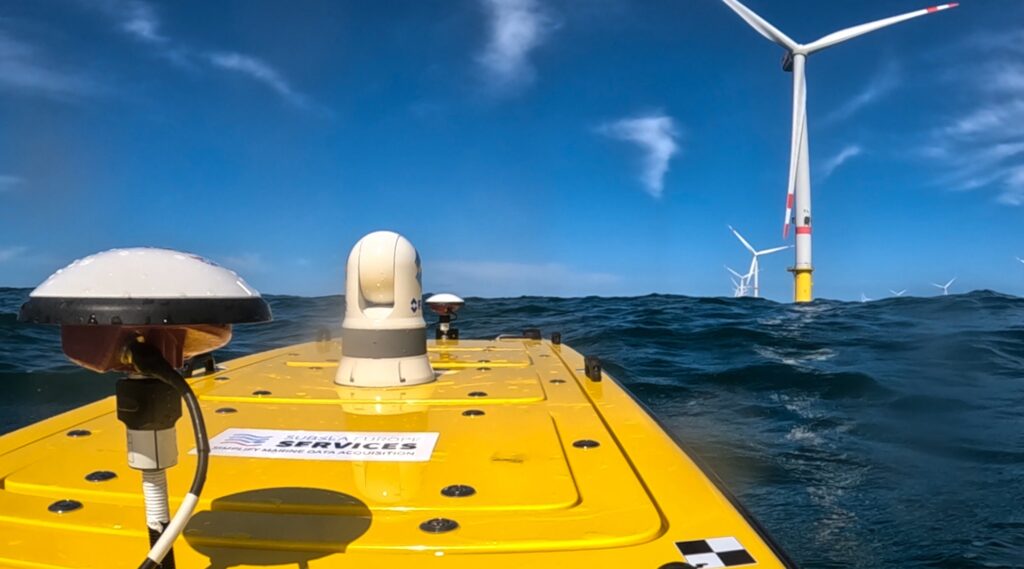
According to the latest data from the German Federal Ministry for Economic Affairs and Energy, the country’s installed capacity for offshore wind power stood at 7.7 gigawatts (GW) as of 2022, accounting for a significant portion of its overall renewable energy portfolio. This marked a steady growth from the 6.7 GW recorded in 2020, indicative of the government’s commitment to expanding this sector.
Offshore Wind Power: A Driving Force
The rise of offshore wind power in Germany has been nothing short of remarkable. The country boasts some of the world’s largest and most technologically advanced offshore wind farms, such as the Wikinger project in the Baltic Sea and the Nordsee One in the North Sea. These installations not only generate clean electricity but also contribute to the nation’s ambitious goals of achieving climate neutrality by 2045.
Tapping the Potential of Tidal and Wave Energy
While offshore wind has been the primary focus of Germany’s marine energy efforts, the country is also exploring the untapped potential of tidal and wave energy. These technologies, although still in the early stages of development, hold the promise of providing a reliable and predictable source of renewable electricity.
Tidal Energy: Harnessing the Power of the Tides
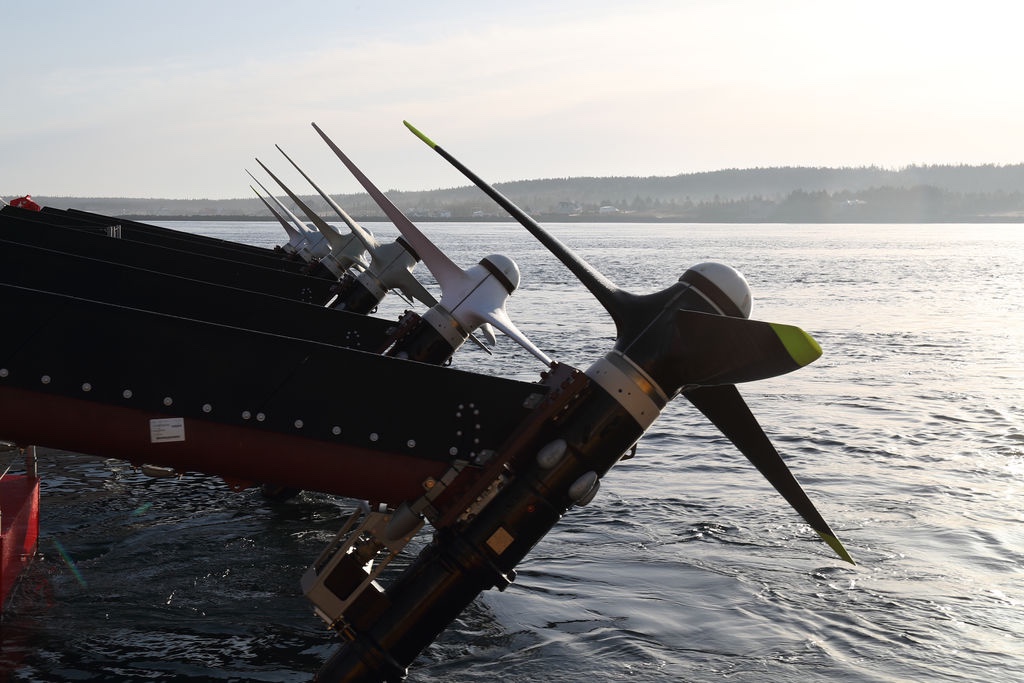
According to a report by the German Offshore Wind Energy Foundation, the country’s coastlines possess significant tidal energy resources, particularly in the North Sea region. The organization estimates that the theoretical potential for tidal energy generation in Germany could reach up to 6.5 GW, a figure that highlights the vast opportunities waiting to be explored.
Wave Energy: Riding the Waves to Sustainable Power
While Germany’s wave energy sector is still in its infancy, research and pilot projects are underway to assess the feasibility of harnessing the power of ocean waves. A study conducted by the Fraunhofer Institute for Wind Energy Systems estimates that the country’s wave energy potential could reach up to 4.5 GW, providing an additional source of renewable electricity.
Overcoming Challenges and Driving Innovation
As with any emerging technology, the development of marine energy in Germany faces a variety of challenges, from regulatory hurdles to technological barriers. However, the country’s commitment to renewable energy and its track record of engineering excellence have positioned it well to overcome these obstacles.
Regulatory Frameworks and Policy Support
The German government has recognized the importance of providing a supportive policy framework for the growth of the marine energy sector. In 2021, the Offshore Wind Act was amended to include provisions for the development of tidal and wave energy projects, paving the way for increased investment and deployment. Additionally, the country’s Renewable Energy Sources Act (EEG) offers financial incentives and feed-in tariffs to encourage the adoption of these technologies.
Technological Advancements and Research Initiatives

Germany’s renowned engineering prowess has been instrumental in driving innovation in the marine energy sector. Research institutions, such as the Fraunhofer IWES and the Leibniz Institute for Baltic Sea Research, are at the forefront of developing new technologies and optimizing existing ones. These efforts have resulted in the deployment of several pilot projects, including tidal energy converters and wave energy devices, that are paving the way for commercial-scale deployment in the coming years.
The Path Forward: Unlocking Germany’s Marine Energy Potential
As the world continues to grapple with the pressing challenges of climate change and energy security, the importance of tapping into Germany’s marine energy potential becomes increasingly evident. The country’s commitment to renewable energy, coupled with its engineering prowess and policy support, has set the stage for a bright future in this burgeoning sector.
Collaborating for a Sustainable Future
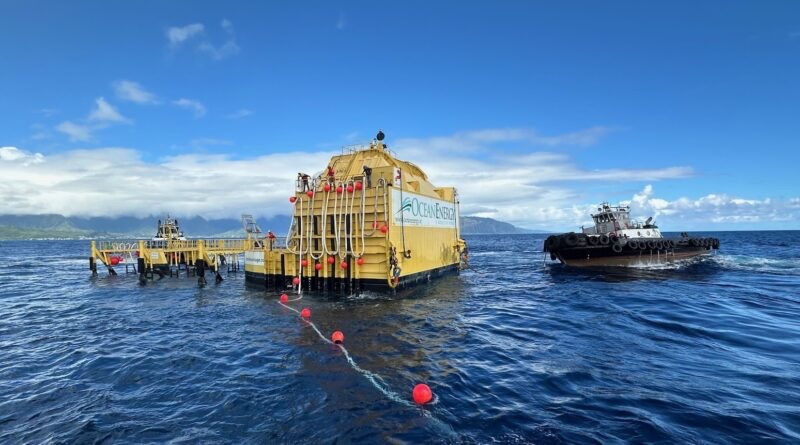
To fully realize the potential of marine energy, Germany will need to foster international collaboration and knowledge-sharing. By partnering with other nations at the forefront of this technology, the country can accelerate the development and deployment of tidal, wave, and offshore wind projects, ultimately contributing to a more sustainable and resilient energy landscape.
Embracing the Blue Economy
Beyond the generation of clean electricity, the growth of Germany’s marine energy sector holds the promise of a thriving “blue economy.” The development of these technologies can create new jobs, stimulate local economies, and position the country as a global leader in the emerging field of ocean-based renewable energy.
A Sustainable and Resilient Energy Future
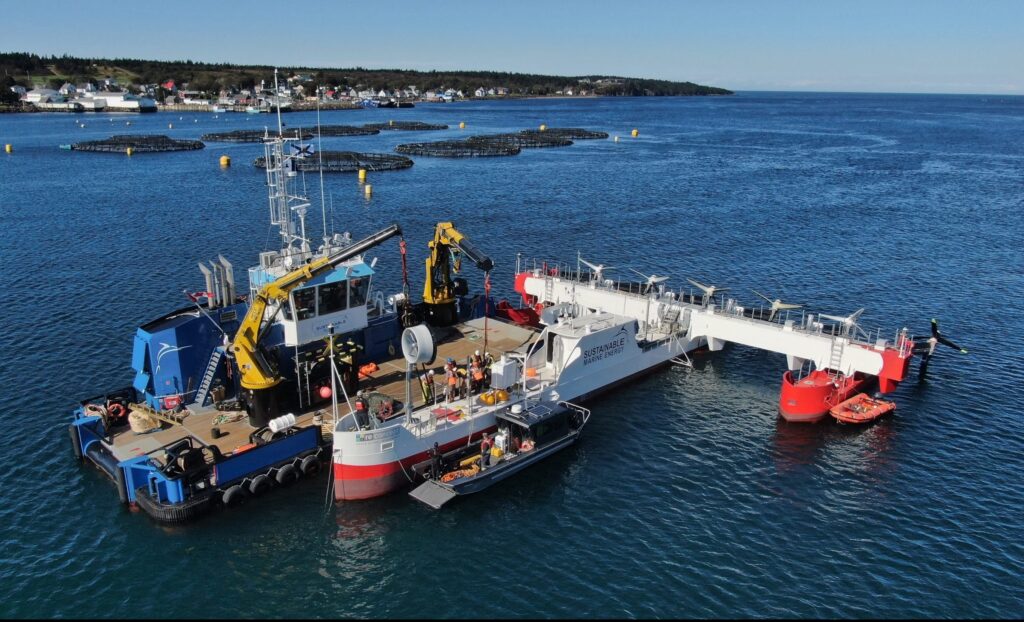
As Germany continues to chart its course towards a carbon-neutral future, the marine energy sector will undoubtedly play a crucial role. By harnessing the power of the tides, waves, and offshore wind, the country can diversify its energy mix, enhance energy security, and make significant strides in its ambitious climate goals. The path ahead may not be without its challenges, but with steadfast commitment and innovative thinking, Germany is poised to unlock the vast potential of its coastal regions and lead the way towards a more sustainable energy future.
Unlocking the Potential of Offshore Wind Energy
Offshore wind power has been the cornerstone of Germany’s marine energy strategy, and the country has made significant strides in this sector over the past decade. According to the latest data from the German Wind Energy Association, the installed capacity of offshore wind farms in Germany reached 7.8 GW at the end of 2022, accounting for a significant portion of the country’s overall renewable energy mix.
Pioneering Offshore Wind Projects
Germany is home to some of the world’s largest and most technologically advanced offshore wind farms. The Wikinger project, located in the Baltic Sea, has an installed capacity of 350 MW and features state-of-the-art turbines that can withstand the harsh marine environment. Similarly, the Nordsee One project in the North Sea has a capacity of 332 MW, highlighting the country’s commitment to large-scale offshore wind development.
Unlocking the Potential of Floating Offshore Wind
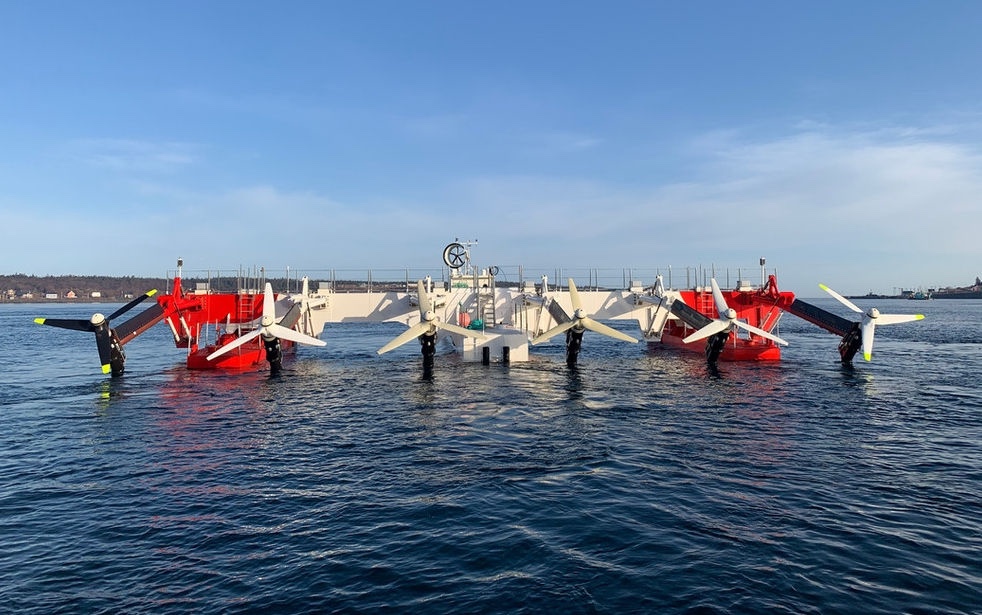
While fixed-bottom offshore wind turbines have been the focus of Germany’s efforts thus far, the country is now turning its attention to the potential of floating offshore wind technology. This innovative approach allows for the deployment of wind farms in deeper waters, where the wind resource is often more abundant and consistent.
According to a report by the German Offshore Wind Energy Foundation, the country’s coastal regions have the potential to host up to 30 GW of floating offshore wind capacity, a figure that underscores the vast untapped potential in this emerging field. The development of floating offshore wind technology could significantly expand Germany’s marine energy footprint and contribute to its renewable energy targets.
Tidal Energy: Harnessing the Power of the Tides
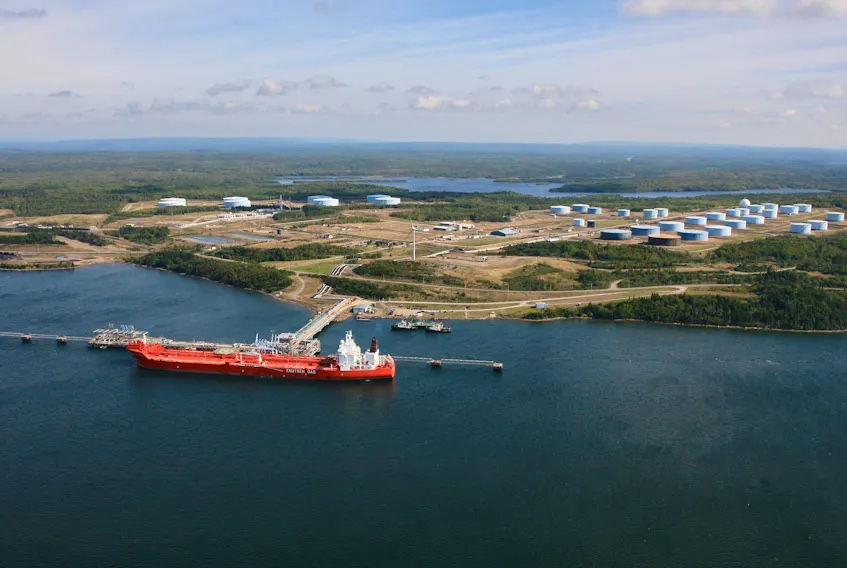
While offshore wind has been the primary focus of Germany’s marine energy efforts, the country is also exploring the untapped potential of tidal energy. The country’s coastal regions, particularly in the North Sea, possess significant tidal resources that could be harnessed to generate clean electricity.
Assessing the Tidal Energy Potential
According to a report by the German Offshore Wind Energy Foundation, the theoretical potential for tidal energy generation in Germany could reach up to 6.5 GW. This figure highlights the vast opportunities waiting to be explored, as the country seeks to diversify its renewable energy portfolio and reduce its reliance on fossil fuels.
Pilot Projects and Technological Advancements
Germany has taken initial steps towards harnessing tidal energy, with several pilot projects and research initiatives underway. The Fraunhofer Institute for Wind Energy Systems, for instance, has been leading the development of tidal energy conversion technologies, exploring innovative ways to harness the power of the tides. These efforts are paving the way for the eventual commercial deployment of tidal energy projects in the country.
Wave Energy: Riding the Waves to a Sustainable Future
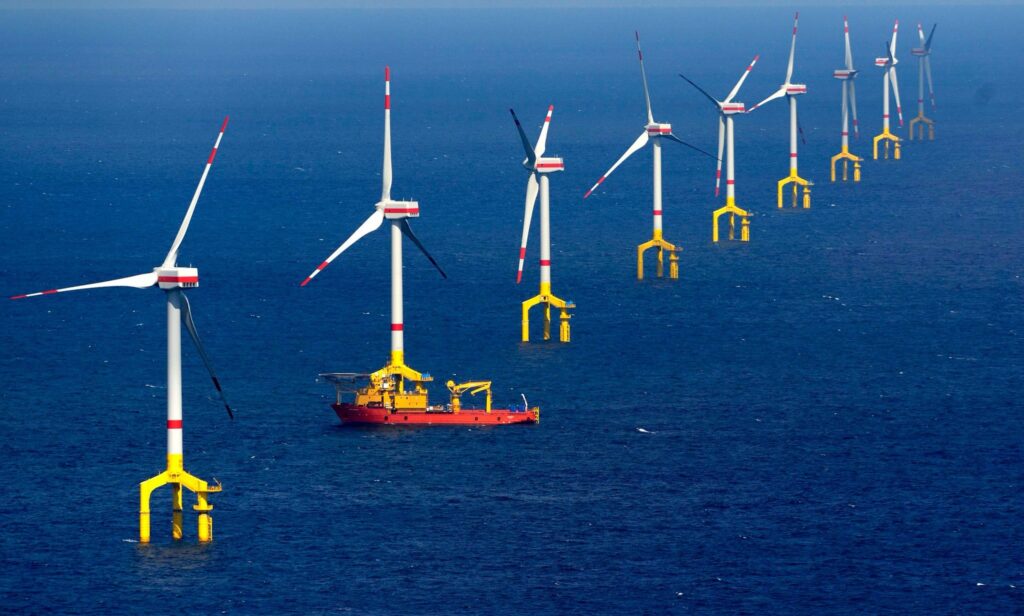
In addition to tidal energy, Germany is also exploring the potential of wave energy as a source of renewable electricity. While this sector is still in its early stages, research and pilot projects are underway to assess the feasibility of harnessing the power of ocean waves.
Assessing the Wave Energy Potential
A study conducted by the Fraunhofer Institute for Wind Energy Systems estimates that Germany’s wave energy potential could reach up to 4.5 GW. This figure highlights the significant opportunities that exist for the country to diversify its marine energy portfolio and contribute to its renewable energy goals.
Pilot Projects and Technological Innovations
To unlock the potential of wave energy, Germany has invested in various research and development initiatives. The Fraunhofer IWES, for instance, has been leading the way in the development of wave energy conversion technologies, exploring innovative approaches to harnessing the power of ocean waves. These efforts have resulted in the deployment of several pilot projects, laying the groundwork for the future commercial-scale deployment of wave energy devices.
The Road Ahead: Unlocking Germany’s Marine Energy Potential
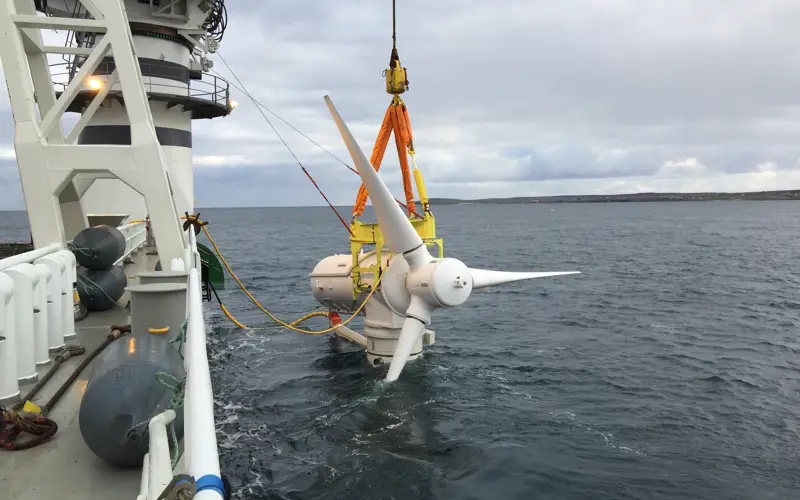
As Germany continues to chart its course towards a sustainable energy future, the untapped potential of its coastal regions presents a promising opportunity. By harnessing the power of offshore wind, tidal, and wave energy, the country can diversify its renewable energy portfolio, enhance energy security, and make significant strides in its ambitious climate goals.
Fostering International Collaboration
To fully unlock the potential of marine energy, Germany will need to foster international collaboration and knowledge-sharing. By partnering with other nations at the forefront of this technology, the country can accelerate the development and deployment of these innovative solutions, ultimately contributing to a more sustainable and resilient global energy landscape.
Embracing the Blue Economy
The growth of Germany’s marine energy sector holds the promise of a thriving “blue economy.” The development of these technologies can create new jobs, stimulate local economies, and position the country as a global leader in the emerging field of ocean-based renewable energy. By embracing this opportunity, Germany can not only meet its energy needs but also drive economic growth and sustainable development.
A Sustainable and Resilient Energy Future
As the world continues to grapple with the challenges of climate change and energy security, the importance of tapping into Germany’s marine energy potential becomes increasingly evident. By harnessing the power of the tides, waves, and offshore wind, the country can make significant strides towards its goal of achieving climate neutrality by 2045, while also contributing to a more sustainable and resilient energy future for generations to come.
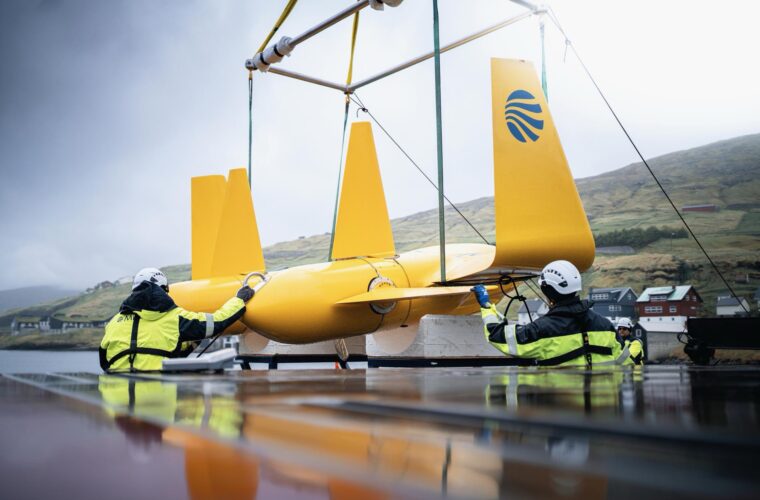


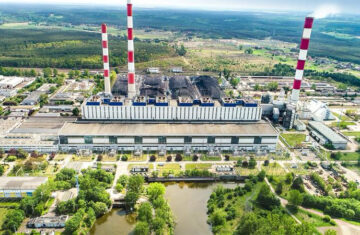
[…] Renewable Energy Sources Act (Erneuerbare-Energien-Gesetz, or EEG) is the central policy framework that has […]
[…] Erneuerbare-Energien-Gesetz (EEG) ist der zentrale politische Rahmen, der den Ausbau der erneuerbaren Energien in Deutschland […]
[…] Ley de Energías Renovables (Erneuerbare-Energien-Gesetz, o EEG) es el marco político central que ha sustentado la expansión […]
[…] loi sur les sources d’énergie renouvelables (Erneuerbare-Energien-Gesetz, ou EEG) est le cadre politique central qui sous-tend […]
[…] legge sulle fonti energetiche rinnovabili (Erneuerbare-Energien-Gesetz, o EEG) è il quadro politico centrale che ha sostenuto l’espansione […]